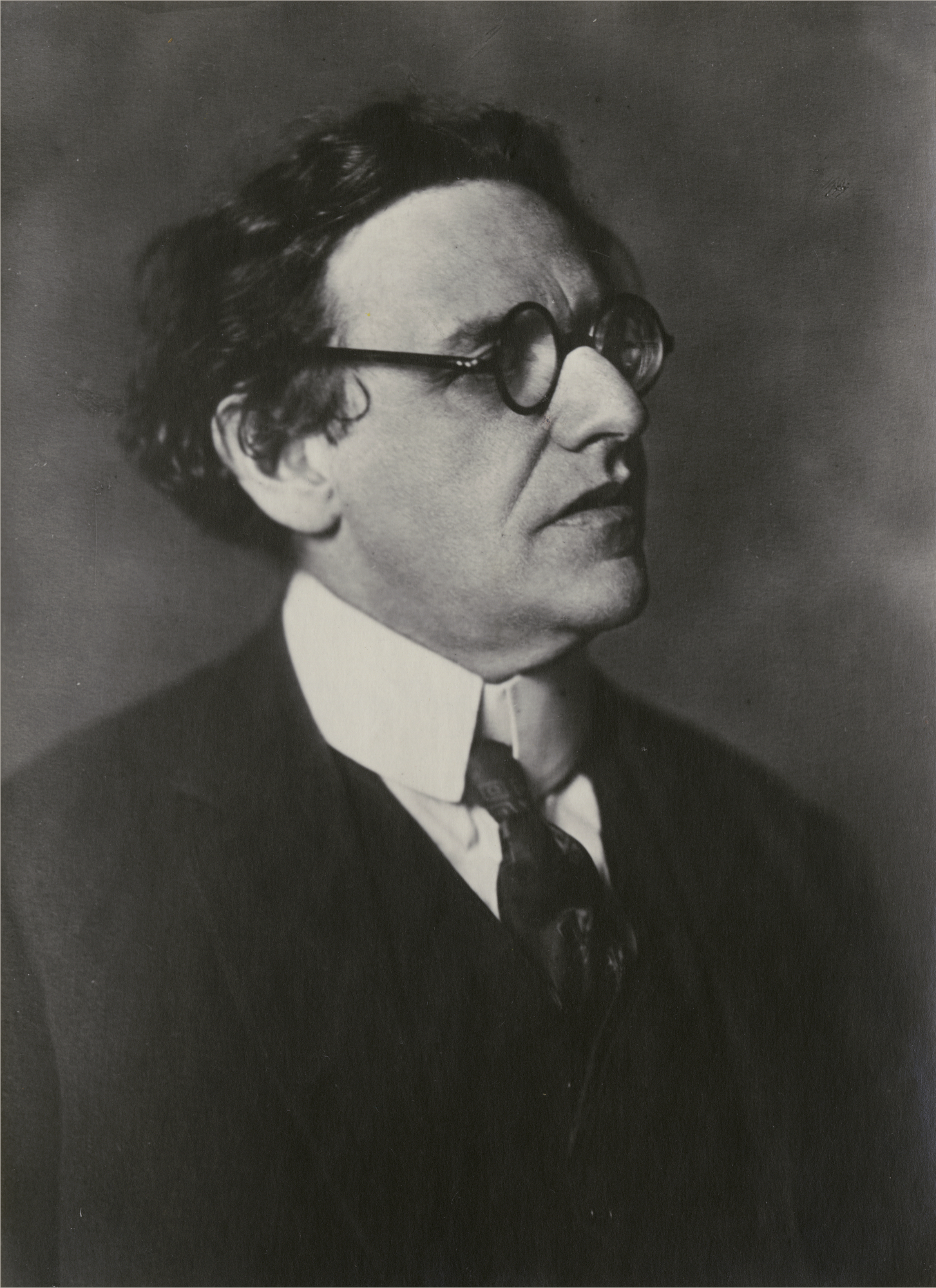|
Karl Wolfskehl
Karl Wolfskehl (17 September 1869 – 30 June 1948) was a German Jewish author and translator. He wrote poetry, prose and drama in German, and translated from French, English, Italian, Hebrew, Latin and Old/Middle High German into German. Biography Wolfskehl's family had a long history in Germany. During the 10th century, one of his ancestors, a rabbi, had emigrated to Germany from Italy with the Holy Roman Emperor Otto II. Wolfskehl's ancestors then settled in Mainz, where they lived for the next thousand years. Karl Wolfskehl was born in Darmstadt, Germany, the son of the banker and politician . He studied Germanic languages and philology and a range of humanities courses in Giessen, Leipzig and Berlin. Under Otto Behaghel, he gained a PhD with a dissertation on a topic in German mythology. In 1898 he married Hanna de Haan (1878-1946), daughter of the Dutch conductor at the Grand Ducal court theatre at Darmstadt. They had two daughters, Judith (born 1899) and Renate (bor ... [...More Info...] [...Related Items...] OR: [Wikipedia] [Google] [Baidu] |
Theodor Hilsdorf, Karl Wolfskehl
Theodor is a masculine given name. It is a German form of Theodore. It is also a variant of Teodor. List of people with the given name Theodor * Theodor Adorno, (1903–1969), German philosopher * Theodor Aman, Romanian painter * Theodor Blueger, Latvian professional ice hockey forward for the Pittsburgh Penguins of the National Hockey League (NHL) * Theodor Burghele, Romanian surgeon, President of the Romanian Academy * Theodor Busse, German general during World War I and World War II * Theodor Cazaban, Romanian writer * Theodor Fischer (fencer), German Olympic épée and foil fencer * Theodor Fontane, (1819–1898), German writer * Theodor Geisel, American writer and cartoonist, known by the pseudonym Dr. Seuss * Theodor W. Hänsch (born 1940), German physicist * Theodor Herzl, (1860–1904), Austrian-Hungary Jewish journalist and the founder of modern political Zionism * Theodor Heuss, (1884–1963), German politician and publicist * Theodor Innitzer, Austrian Catholic car ... [...More Info...] [...Related Items...] OR: [Wikipedia] [Google] [Baidu] |
German Jew
The history of the Jews in Germany goes back at least to the year 321, and continued through the Early Middle Ages (5th to 10th centuries CE) and High Middle Ages (''circa'' 1000–1299 CE) when Jewish immigrants founded the Ashkenazi Jewish community. The community survived under Charlemagne, but suffered during the Crusades. Accusations of well poisoning during the Black Death (1346–53) led to mass slaughter of German Jews and they fled in large numbers to Poland. The Jewish communities of the cities of Mainz, Speyer and Worms became the center of Jewish life during medieval times. "This was a golden age as area bishops protected the Jews resulting in increased trade and prosperity." The First Crusade began an era of persecution of Jews in Germany. Entire communities, like those of Trier, Worms, Mainz and Cologne, were slaughtered. The Hussite Wars became the signal for renewed persecution of Jews. The end of the 15th century was a period of religious hatred that ascribed ... [...More Info...] [...Related Items...] OR: [Wikipedia] [Google] [Baidu] |
Thomas Mann
Paul Thomas Mann ( , ; ; 6 June 1875 – 12 August 1955) was a German novelist, short story writer, social critic, philanthropist, essayist, and the 1929 Nobel Prize in Literature laureate. His highly symbolic and ironic epic novels and novellas are noted for their insight into the psychology of the artist and the intellectual. His analysis and critique of the European and German soul used modernized versions of German and Biblical stories, as well as the ideas of Johann Wolfgang von Goethe, Friedrich Nietzsche, and Arthur Schopenhauer. Mann was a member of the Hanseatic Mann family and portrayed his family and class in his first novel, ''Buddenbrooks''. His older brother was the radical writer Heinrich Mann and three of Mann's six children – Erika Mann, Klaus Mann and Golo Mann – also became significant German writers. When Adolf Hitler came to power in 1933, Mann fled to Switzerland. When World War II broke out in 1939, he moved to the United States, then returned to Swit ... [...More Info...] [...Related Items...] OR: [Wikipedia] [Google] [Baidu] |


_by_night.jpg)